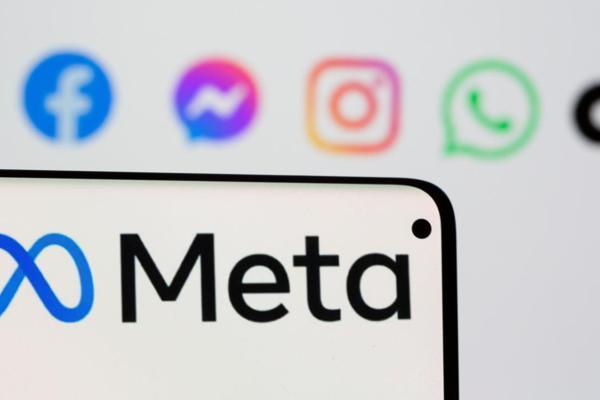Facebook’s Meta takes on bond debt, in a first
SAN FRANCISCO


Facebook-owner Meta is ending a run as one of the few major firms without debt, launching its first bond sale as the company battles uncertainty and bets heavily on its metaverse vision.
Worries over the social media giant’s future and fierce competition from TikTok have sent its stock plummeting, while the firm spends billions on its plan for the internet’s next iteration.
Meta reported to the U.S. markets watchdog on Aug.4 that it has begun offering bonds to raise money for uses such as “capital expenditures, repurchases of outstanding shares of its common stock, acquisitions, or investments.”
The firm, which also owns Instagram and WhatsApp, declined to comment beyond its filing to the Securities and Exchange Commission.
Its filing does not indicate the amount of funds it wants to raise, nor the term of the bonds, but Bloomberg news agency reported Meta may sell $8-10 billion in debt.
Last week, Meta reported its first year-on-year drop in quarterly revenue, and its net profit dropped 36 percent to $6.7 billion.
Meta also said that revenue ebbed a percent to $28.8 billion, its first such slip since the firm, then known simply as Facebook, went public in 2012.
“The year-over-year drop in quarterly revenue signifies just how quickly Meta’s business has deteriorated,” said analyst Debra Aho Williamson.
The firm, which relies almost exclusively on advertising revenue, has been hit by a decline in advertisers’ spending driven in part by economic uncertainty and TikTok’s rise.
“I’d say that the situation seems worse than it did a quarter ago,” CEO Mark Zuckerberg told analysts after disappointing results last week.
Some analysts said the company, which rebranded itself last year, should have taken on debt long ago.
“Meta has no debt on its balance sheet unlike other big technology players and the company will aggressively build out its metaverse strategy and that take a lot of capital,” said analyst Dan Ives.
“This is a smart move,” he added.
Facebook renamed itself Meta to signal its pivot to building its vision for an interactive virtual and augmented reality world that it sees as the future.
But since February, its share price has been divided by two, with more than $400 billion in market capitalization disappearing.
“We’re focused on making the long term investments that will position us to be stronger coming out of this downturn,” Zuckerberg told analysts last week.
